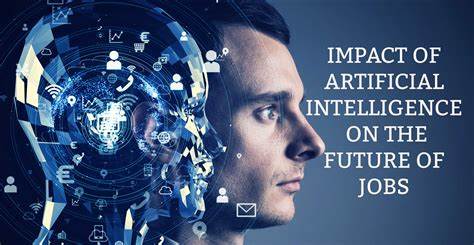Digital Zeitgeist – Can AI Make Our Jobs More Fun & Productive – Experts Say Yes But at What Cost
As the world continues to embrace automation and artificial intelligence, the question of whether machines can make our jobs more enjoyable is being increasingly debated. A recent report by the World Economic Forum predicts that over 80 million jobs could be lost to automation by 2025, leaving many workers wondering if they will be replaced by machines.
However, some experts suggest that AI could make our jobs more fun by taking over the more mundane, repetitive tasks and allowing humans to focus on more creative and fulfilling work.
One such expert is Dr Emma White, a research fellow at the University of Cambridge’s Centre for the Future of Intelligence. “We’ve been conditioned to believe that work is supposed to be boring and painful,” says Dr White. “But with AI, we have the opportunity to redefine what work means and what it can be.”
Dr White points out that AI can be used to take over the tasks that humans find boring or repetitive, such as data entry, leaving humans free to focus on more creative and fulfilling work. This could include designing new products, coming up with marketing strategies, or working on complex problem-solving.
She also suggests that AI could be used to create more personalised work experiences for individual employees. “AI could be used to identify what tasks each employee enjoys and excels at, and then allocate work accordingly,” she says. “This could help create a more engaged and motivated workforce.”
Other experts agree that AI could make our jobs more enjoyable. A recent study by Accenture found that workers who used AI to automate repetitive tasks reported higher levels of job satisfaction and felt more engaged with their work.
However, not everyone is convinced. Some critics argue that relying too heavily on AI could lead to a loss of human skills and creativity. They worry that if machines take over all the repetitive tasks, humans will lose the ability to do them themselves.
Others worry that relying on AI to make work more enjoyable could lead to a dangerous level of dependence on technology. “If we become too reliant on AI to make our jobs fun, what happens if the technology fails?” asks Michael J. Smith, a technology consultant based in New York. “We need to be careful not to rely too much on machines, and to maintain our own skills and creativity.”
There is also concern that the use of AI to make work more enjoyable could lead to a further widening of the income gap between skilled and unskilled workers. “If AI takes over the boring, low-skilled jobs, what happens to those workers?” asks Dr. White. “We need to make sure that the benefits of AI are shared fairly across society.”
Despite these concerns, it seems likely that AI will continue to play an increasingly important role in the workplace. According to a recent report by Gartner, by 2025, 75% of all businesses will be using some form of AI.
So, how can we make sure that AI is used in a way that benefits everyone? Dr White suggests that it’s important to focus on retraining workers for the new jobs that will be created by automation. “We need to make sure that workers have the skills they need to take on the more complex and creative tasks that AI can’t do,” she says.
She also suggests that companies need to be transparent about how they are using AI and involve their employees in the process. “Workers should be involved in the decision-making process about how AI is used in their workplace,” she says. “This will help to build trust and ensure that the benefits of AI are shared fairly.”
In the end, the question of whether AI can make our jobs more enjoyable is a complex one, with no easy answers. However, it seems clear that if we use AI in a thoughtful and strategic way, it has the potential to revolutionise the way we work, making it more fulfilling, engaging, and enjoyable for everyone. As we continue to navigate the changing landscape of work, it will be important to prioritise the human element, ensuring that the benefits of AI are shared fairly across society, and that we maintain our own skills and creativity in the face of advancing technology. By doing so, we can create a future of work that is both innovative and humane, and that offers opportunities for personal growth, creativity, and fulfillment.
Ultimately, the question of whether AI can make our jobs more enjoyable will continue to be a topic of debate and exploration in the years to come. While there are certainly risks and challenges associated with the use of AI in the workplace, there are also significant potential benefits to be gained. By focusing on creating a more equitable and humane future of work, and by using AI in a way that prioritises the needs and desires of workers, we can create a future in which technology and humanity work together to create a better, more fulfilling world. As we move forward, it will be important to remain vigilant and thoughtful about the ways in which AI is integrated into our working lives, and to ensure that we are always working towards a future that is inclusive, empowering, and just.
online sources: theguardian.com, weforum.org, gartner.com

